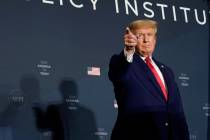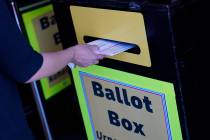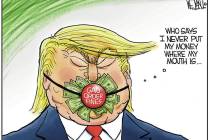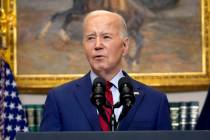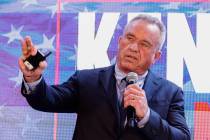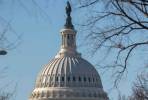Is Barack Obama a fiscal conservative?
In winning the Democratic nomination for president, Barack Obama served up dozens of softballs for the eventual Republican nominee in the form of far-left policy proposals. This week, GOP Sen. John McCain stepped to the plate to take a big swing at Sen. Obama's most inviting pitch: job-crushing tax increases on dividends, capital gains, energy companies and higher-income workers.
"No matter which of us wins in November, there will be change in Washington," Sen. McCain said Tuesday in Washington. "The question is, what kind of change? Will we enact the single largest tax increase since the Second World War, as my opponent proposes, or will we keep taxes low for families and employers?"
Now that the struggling economy has emerged as the electorate's top issue, Sen. McCain's message is a political home run.
For most of the past year, Sen. Obama has championed a massive transfer of wealth from the loosely defined "rich" to "working families." Although the country's wealthiest 40 percent of households already pay 99 percent of all income taxes, and the bottom 40 percent pay no income tax, Sen. Obama advocates raising rates on the top tax brackets, topping out at 39.6 pecent, and giving those proceeds to lower- and middle-class filers in the form of $500 tax credits.
He wants to eliminate the income cap on Social Security withholdings, another huge blow to those who earn more than $100,000 and their companies. Then there's the billions of dollars in tax increases on the oil and gas industries and on the private equity firms whose holdings employ millions of Americans. Sen. Obama wants to spend that money on alternative energy subsidies and new social programs.
Of most concern to economists, though, is Sen. Obama's long-standing plan to boost the tax rate on dividends and capital gains from 15 percent to 28 percent. When President Clinton signed Republican legislation that slashed the rate from 28 percent to 20 percent in 1997, the economy registered three consecutive years of growth of at least 4 percent. And when President Bush further cut the rate to 15 percent, the result was record amounts of investment -- and record tax receipts for the federal treasury.
Especially in a languishing economy, Sen. Obama's proposal could actually reduce the amount of federal revenue from dividends and capital gains, discouraging the job-creating infusion of private funds the country desperately needs and driving it overseas.
Which is why Sen. Obama is now sprinting to the right on taxes and talking -- gasp! -- like a Republican.
"This notion that John McCain is peddling, that somehow Democratic candidates are interested in tax and spend is just not true," Sen. Obama said Tuesday to counter Sen. McCain's offensive. "You can get to a point where taxes are so burdensome on businesses that it inhibits their investment and plants and equipment, research and development, but nobody is talking about huge shifts in our tax system."
This marks a huge rhetorical shift from liberal orthodoxy, which holds that tax rates have no bearing on the economy and prosperity. In fact, Sen. Obama has all but abandoned the idea of returning the capital gains tax rate to 28 percent -- he now favors a rate of about 20 percent, the same threshold proposed by former party rival Hillary Clinton.
"I can't predict yet where the economy is going to be" next year, he said Tuesday. "So it would be foolish for me to say I've got my economic plan and we are going forward with it regardless of what circumstances are. ... My principle when it comes to taxes is that we should keep them low as possible while still investing in the basic infrastructure and human capital that are needed to make the economy grow."
In a previous interview on CNBC, Sen. Obama asserted "We can't go back to some of the, you know, confiscatory rates that existed in the past that distorted sound economics."
It's good that Sen. Obama recognizes a nexus between federal tax policy and the private economy. However, given his tendency to favor political expedience over principle (see the Rev. Jeremiah Wright, Middle East policy, etc.), voters are justified in doubting his fiscal conservative credentials and demanding more specific proposals.
After all, if Sen. Obama is willing to acknowledge that severe tax hikes might further damage the country's fiscal health, why would he want to hinder an economic recovery by raising taxes at all?








